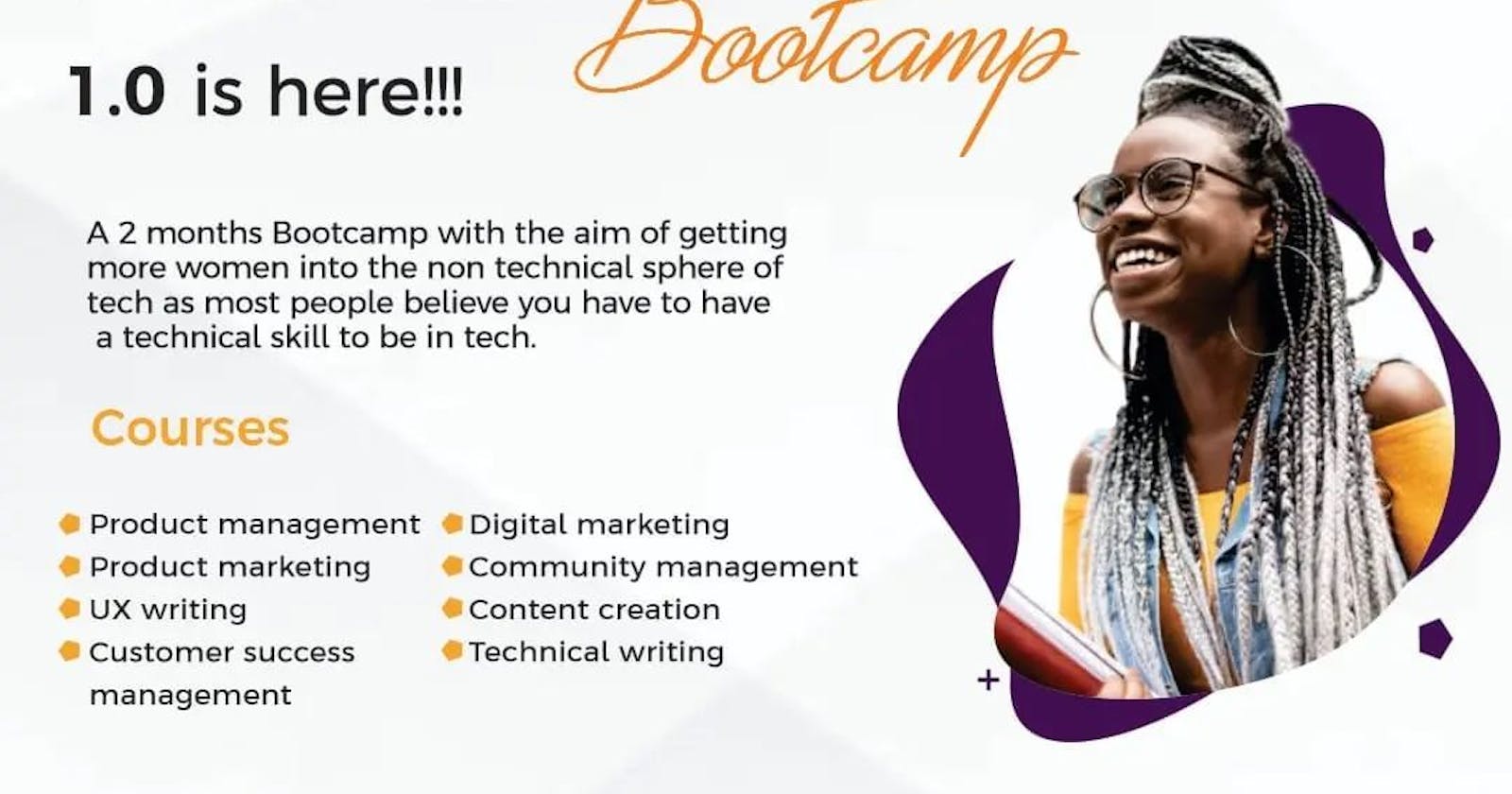I'm excited to share my experience at the Empower Her X Non Tech in Tech virtual Bootcamp while transitioning from content writing to technical writing.
This was not just any Bootcamp, but an inclusive one that provides a supportive environment for women who are interested in learning how to code and break into the tech industry. The entire experience was amazing! I had the chance to work with a group of women who were just like me, aspiring coders and writers, and we created a support system that allowed us all to learn together. But when I first heard about the Empower Her X Non Tech in Tech virtual Bootcamp, I was super intimidated. I mean, what if I didn't have the skills or experience to make the transition from content writing to technical writing? What if I couldn't get a job after completing this Bootcamp?
But then I realized something: It's not about how many years you've been doing something. It's about how much you're willing to learn and grow as an individual. And I knew that if I could put myself out there, and really try my best, the rewards would be worth it in the end.
So here's what happened…
Pre-Bootcamp Jitters
There are a lot of things I've been told about being a woman in tech: it's hard, it's lonely, and it can be pretty isolating.
I'm here to tell you that it doesn't have to be.
It didn't matter if we were brand new to technical writing, or if we had years of experience, it also didn't matter if we had any experience in tech; as long as we were willing to learn and grow, we were welcome. And boy did we learn. Over the course of six weeks, we learned about everything from basic writing and technical writing principles to more advanced topics like APIs. We also got some tips on how to break into the industry from people who have been there before us—and what better way than through virtual classrooms?
I know what you're thinking: "But Temitope, how can this be? How can an online class be as effective as an in-person one?" I'll tell you: because these classes were taught by real people. The instructors were all super helpful and knowledgeable about their respective topics. They answered any questions students had in real time via Slack and made themselves available outside of scheduled class hours if needed. The class sizes were small enough that everyone had opportunities for one-on-one interactions with instructors throughout each week's lesson plan.
The Classes
Week One: Introduction to Technical Writing
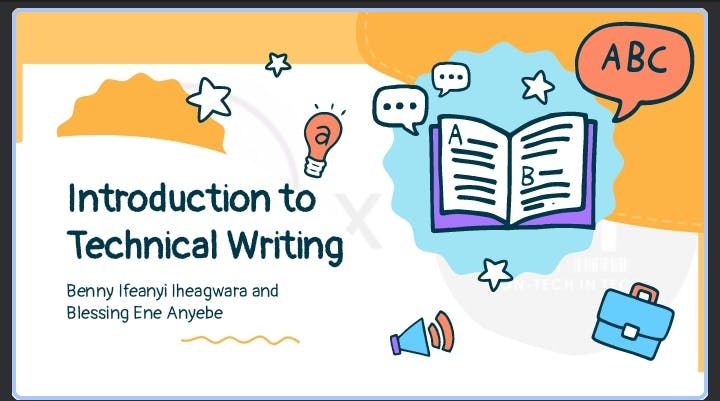
Ifeanyi Bennyand Blessing Anyebe gave us a thorough introduction to technical writing. During this first week, we learned a few things, including the following:
- Basics of technical writing.
- Importance of technical writing.
- Forms of technical writing.
- Skills required of a technical writer.
We had to make blogs on Medium, Hashnode, Hackernoon, or Dev.to and submit the URLs as part of our first week's homework. I made a Hashnode account since I already have one on WordPress.
Week Two: Tools in Technical Writing
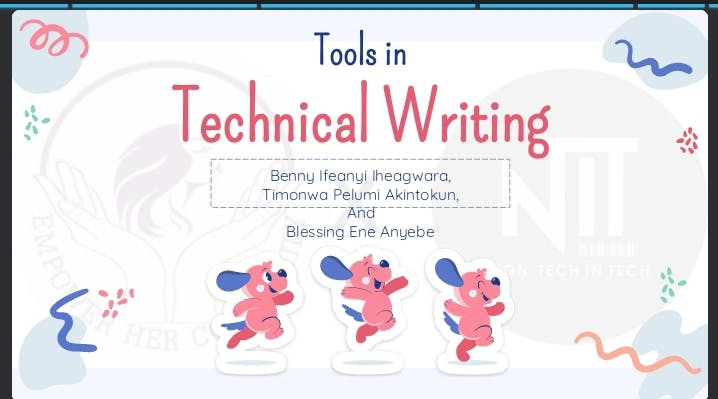
We learned about the different technical writing tools and how to use Markdowns from one of our facilitators, Timonwa Pelumi Akintokun. Here is a list of the subjects we learned during the second week of the Bootcamp:
- Categories of Technical Writing Tools
- Research Tools
- Media/Visual Tools
- Note-taking Tools
- Editing Tools
- Authoring Tools
- Publishing Tools
- Documentation Tools
- Collaborative and Management Tools
These tools were made available to us so that we may study markdown language: Freecodecamp Markdown Tutorial, Markdown Tutorial site. Our week two assignment was to write an article. We were to create a Google Docs article on any topic or subject of our choosing and provide a link to it. In my article, I discussed The Differences and Similarities of Augmented Reality and Virtual Reality.
Week Three: Assignments Reviews/The Writing Process
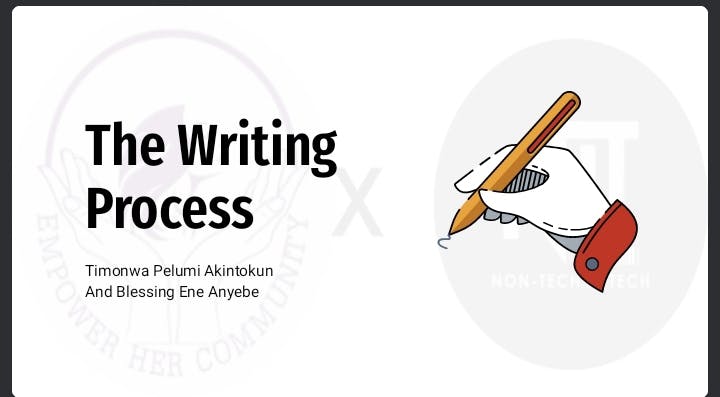
In the third week, our facilitators reviewed the articles we created in the previous week. While reviewing, corrections were made and we learned the various writing processes and how writers go through all of these processes to create a great article. One major thing that stood out for me was the importance of an outline. An outline is the first thing that every article or blog post has. We discovered the steps writers take to articles, then edit, remove, assess, and modify them before eventually posting them. We were also given a lot of pointers on how to make our articles better. These pointers include:
- Effective use of tools like Grammarly, Quillbot, Hemminway Editor to check for spelling and grammatical error
- Information can be represented with photos, videos, GIFs, or infographics since, as we all know, "a picture is worth a thousand words."
- Avoiding plagiarism by using plagiarism checkers in our articles.
At the end of the reviews, we were asked to publish an article on the blog profile we created in the first week. I posted mine here.
Week Four: Search Engine Optimization (SEO)
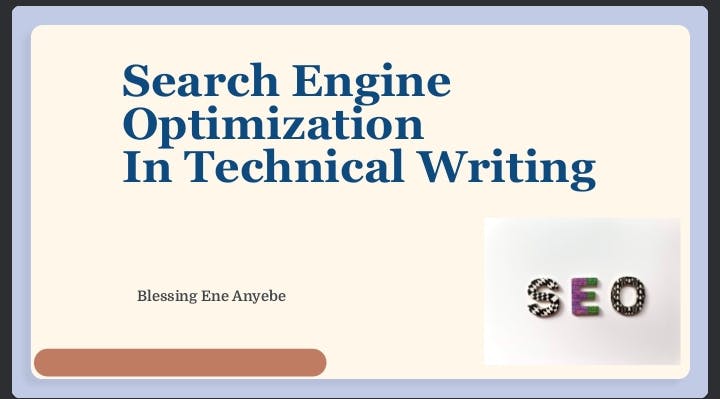
SEO is a strategy that technical writers can use to improve the visibility of their content and help readers find it. It's important for technical writers, because it increases the chances of getting traffic to websites and blogs, which can lead to more conversions and more clients—which means more money. In this fourth week, we were taken into the world of Search Engine Optimization where we learned:
- Definition of SEO
- Types of SEO
- Importance of SEO
- How to optimize in technical writing
- SEO tips for technical writers
Week Five: Documentation in Technical Writing
Light Segunwas our trainer for the fifth week and he was amazing. He thoroughly explained API documentation. API documentations can be a little challenging to read because they require a complete comprehension about how APIs are utilized and how they work. It is simpler for software engineers to generate the documentation because they are actively engaged in creating and utilizing APIs.
Technical writers may also document APIs, but doing so necessitates that they have some understanding with the relevant computer language, if not the API itself. He however gave us some pointers like: describing your resource, using endpoints, and how to use parameters among others.
Week Six: Open Source
This was the final week of the training. Here I learned that technical writers who want to gather experiences can contribute to Open Source Projects. Our facilitators gave us a number of open source projects we can apply to for contribution. We were also given tips on how to break into the technical writing industry. Tips like:
- How to create and present portfolios.
- How to create resumes.
- How to prepare for interviews.
- How to make money online as a newbie technical writer.
- Technical writing communities to join.
- Soft skills to get as a technical writer.
- Where and how to get jobs as a newbie technical writer.
Side Attractions
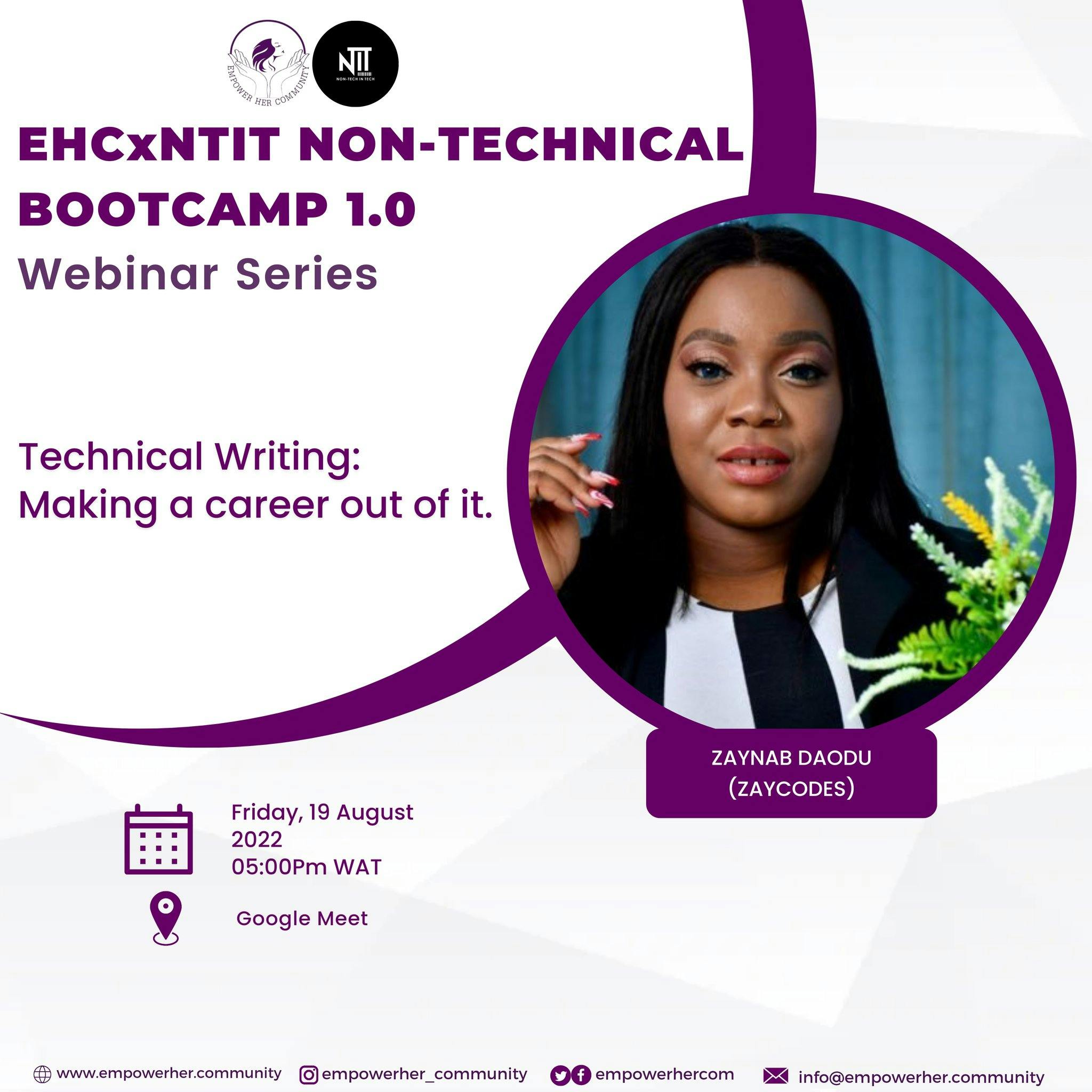
During the Bootcamp, we had the opportunity to have a one on one session with an industry expert, Zainab Daodu. She is a technical writer with years of experience. She took us through her personal journey in technical writing and she also shared tips that helped her as a technical and software writer. The session was amazing as we got to ask questions and receive answers to our questions.
Then vs Now
Before the Non-Tech In Tech Bootcamp, I didn't have any experience with coding or writing technical documents. I knew that I wanted to be a part of the tech industry, but I didn't know how to get there. The Bootcamp was an amazing opportunity for me because it gave me the chance to learn what it takes to be successful in this field.
Now that I am focused on writing technical documents and Currently, I am applying for a number of paid Open Source Software programs, where I can become a contributor until I am able to get a permanent job or internship.
In Conclusion
Overall, my experience at Non-Tech in Tech was an incredibly enlightening and eye-opening one. It helped me see that even though I don't have much experience in a technical field, I can still apply my same talents to make sure others can benefit from my skills and knowledge. Plus, the fact that I had come from the Non-Technical environment allowed me to bring a different perspective to the event, which I believe helped provide more insight for my peers.
I'm so grateful for my experience at Empower Her Community X Non-Tech In Tech Bootcamp! It has helped me find my passion for tech and given me the confidence to pursue my dream career.

